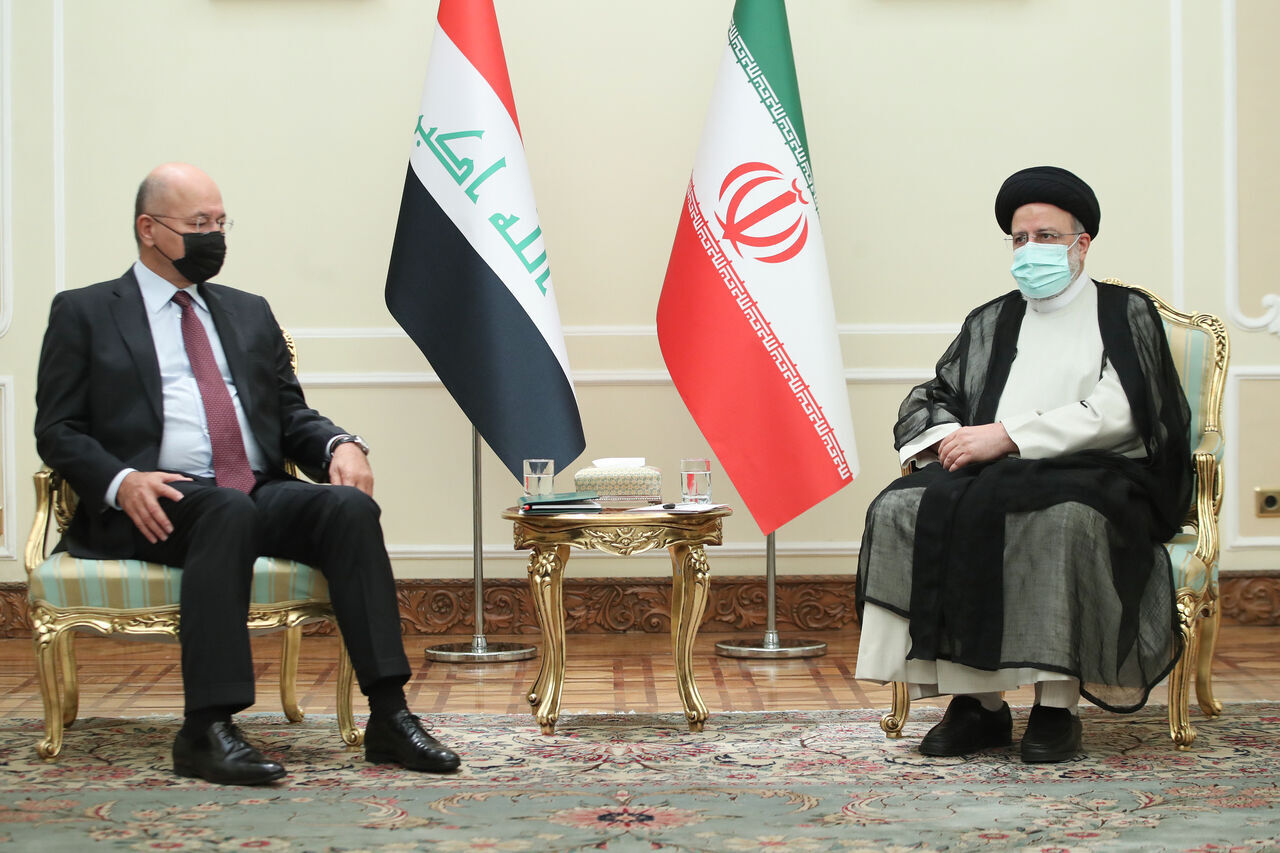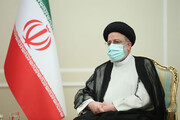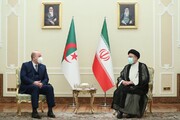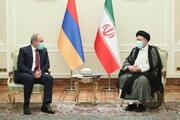During the meeting with the Iraqi president, Raisi expressed hope that the upcoming elections in Iraq would also be a stage for fulfilling the Iraqis' demands for the dignity and authority of Iraqis.
He called every step towards Iraq's authority and the shortening of the hands of foreigners from Iraq as progress and stated that Iran has not hesitated to donate the blood of its dearest sons, such as Martyr Lieutenant General Qassem Soleimani, in order to preserve Iraq's territorial integrity, security, and stability.
Stressing the importance of the Arbaeen ritual, he stressed the need to facilitate the traffic of pilgrims of the Holy Shrines, Arbaeen march, and attend mourning ceremonies in Karbala, including accelerating the launch of the Khorramshahr-Basra railway line.
Salih, for his part, said that despite the significant progress in relations between the two countries after the fall of Saddam's dictatorship, there are still numerous capacities to expand relations between the two states.
Acknowledging the efforts of the Islamic Republic of Iran in maintaining Iraq's territorial integrity and fighting terrorism, he noted that history will remind us that Iran is a friend of Iraq in its hard days and this will always be the beacon of the Iran-Iraq’s future relations.
In a separate meeting with the head of the Iraq Supreme Judicial Council Faiq Zaidan on Thursday, Raisi said that the Islamic Republic of Iran sees no limits in the path of development of relations with Iraq in various fields.
Stating that the Islamic Republic of Iran and Iraq have extensive religious, historical, and cultural commonalities, he noted that Iran has a special notice for the relations and cooperation between Tehran and Baghdad, and strengthening relations with this country is a priority of Iran's foreign policy.
Raisi also commemorated the martyrs Qassem Soleimani and Abu Mahdi al-Mohandes in the fight against terrorism and efforts to bring peace and stability to the region, saying that the US government explicitly claimed responsibility for this major crime and this was practically a state-run terrorist act and the US should be held accountable to the world's public opinion and history.
Afghanistan's President Mohammad Ashraf Ghani, Iraqi President Barham Salih, Venezuelan vice president, Bangladesh's foreign minister, deputy foreign minister of South Korea, Ghana's deputy foreign minister, leader of Shia community in Turkey, deputy speaker of Kazakhstan's parliament, head of supreme council of Kyrgyzstan, as well as parliament speakers from Tajikistan, Uzbekistan, Zanzibar, Syria, Tanzania, and Niger have arrived in Tehran to take part in the ceremony.
Deputy speaker of the Malaysian Parliament, Ghana's tourism minister, director general of Italy's Foreign Ministry, and secretary-general of OPEC are also in Tehran to participate in the event.
High-ranking officials of the European Union headed by Deputy Secretary-General of the European Union (EU) for Foreign Action Enrique Mora arrived in Tehran on Tuesday to take part in the ceremony. The EU ambassador to Vienna and head of the Iran Action Desk in the European Union accompany Mora in the visit.
Ebrahim Raisi will be sworn in as president of the Islamic Republic of Iran at the parliament at 17:00 local time.
Out of over 59.3 million eligible voters, nearly 29 million took part in the 13th presidential election on June 18, 2021. Ebrahim Raisi won the presidential race with over 18 million votes out of nearly 29 million ballots, which shows a 48.8 percent turnout.
The swearing-in of the president in Iran is based on Article 121 of the constitution. According to the constitution, in the swearing-in ceremony, the Judiciary chief and members of the Expediency Council should be present in the parliament.
Supreme Leader of the Islamic Revolution Ayatollah Seyyed Ali Khamenei endorsed the decree of Ebrahim Raisi as the 8th president of Iran on Tuesday.
3266**2050
Follow us on Twitter @IrnaEnglish







Your Comment